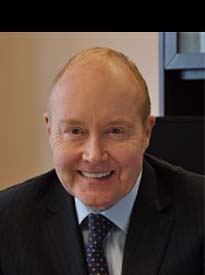
The concept of the “expert committee” has become a popular vehicle combining regulators and industry personnel to develop and implement guidelines, as well as procedures and processes, for better compliance of new rules. But implementing new rules through an expert committee is complicated, unwieldy and inefficient, given the industry’s many different business models, differing views on effective compliance, and different and evolving financial technology.
Investment Executive’s September 2022 editorial, “Expert committees not the solution to a broken regulatory process,” is one of the first to raise concerns, rightly concluding that expert committees are not the solution to implement an efficient and fair compliance regime for new rules.
The IE editorial touches on perhaps the most serious concern: the expert committee approach inevitably intrudes into fundamental regulatory issues, risking diluting regulatory objectives in the interest of more expedient compliance. Further, the expert committee process is conflicted, giving the perception of unfair industry input to the proposed rules and compliance procedures at the expense of investors. Finally, the expert committee duplicates in part the formal consultative process.
The solution is that the regulators should replace the expert committee with their own internal expertise. To achieve streamlined and cost-efficient regulation, the regulators should not just take on rulemaking responsibilities but also provide recommended broad compliance guidelines and procedures for existing and amended rules.
This dual role of rulemaking and compliance advice will require the regulator to have the close familiarity and understanding of industry-wide compliance practices beyond the current limited knowledge of compliance operations at the dealers, and related leading-edge compliance technology.
Moreover, this dual role providing detailed knowledge of the compliance process would bring hidden value, helping regulators to properly design the rule structure to balance regulatory objectives with cost-efficient compliance.
There are several ways to gain the expertise on compliance operations and systems in the retail wealth business. First, specialized regulatory staff should build closer relationships with individual dealers, including those of different sizes and types, to focus on compliance practices and related technology applications.
Second, the regulators could establish a formal staff exchange program, with regulatory staff taking temporary positions with individual dealers. For example, the regulators could place an emphasis on exchange programs with the dealers and clearinghouses, in anticipation of coming new rules related to clearing and settlement rules, starting with T+1 securities settlement.
Third, the regulators could establish and reinforce closer and ongoing relationships with the small number of technology service firms, such as Broadridge and others, to advise on the functions of existing systems in the industry and on developing technology trends.
Finally, we have seen many similar new rules and regulations related to disclosure and the advisor-client relationship in foreign jurisdictions in response to the 2008 financial crisis and several subsequent crises in recent years. The Canadian regulators could further strengthen their relationships with foreign regulators and trade groups, focused on approaches to improve compliance procedures on certain similar rules.
Ian Russell is a partner with Russell Deacon & Company and past president of the Investment Industry Association of Canada.
